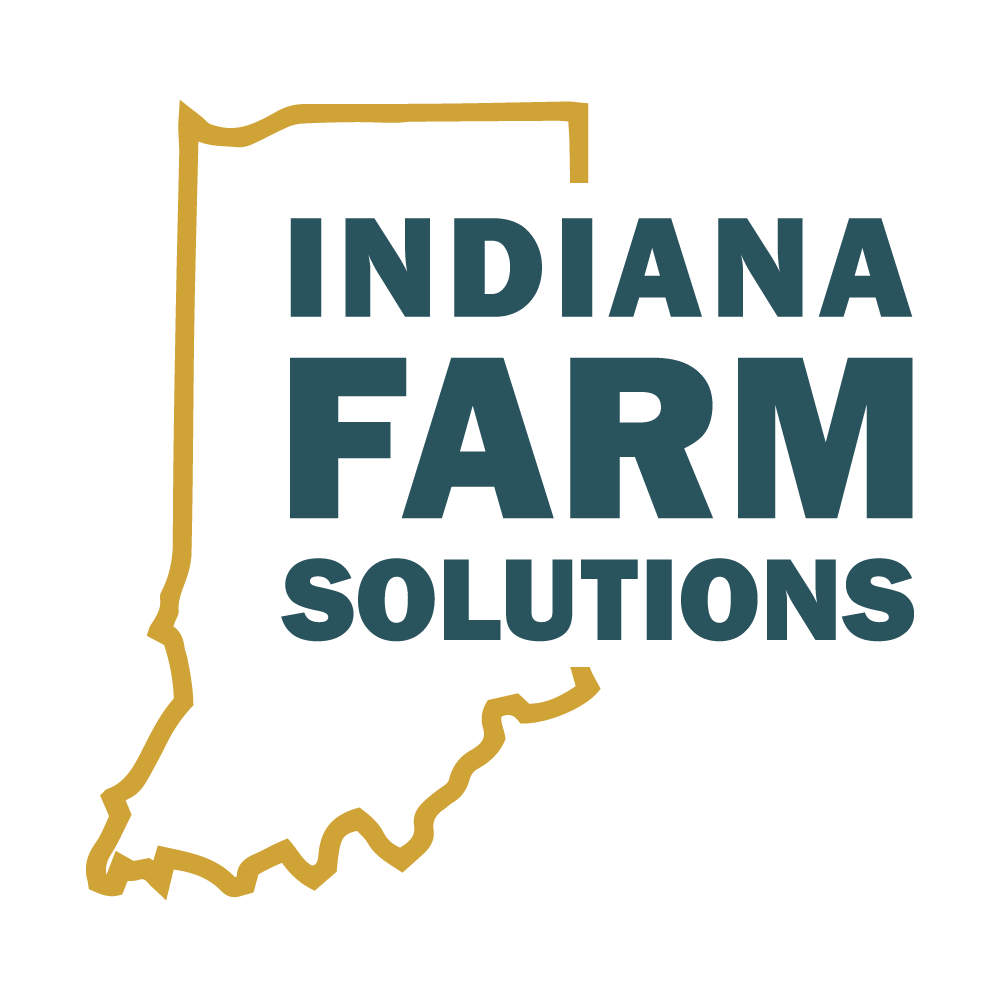Our Services
Download a Soil Test Results sample to get a better idea of what you’ll receive after our soil tests of your field.
Soil comes from rock; the process is biochemically driven by temperature, moisture, abrasion, and life. Understanding and knowing how your soil works and what it needs to produce a healthy crop is one of the most important things in your farming program. At Indiana Farm Solutions, we do our soil sampling by using soil types and not your average grid system. In a grid style sample, you would have to sample every half acre to get the results that we give you in our sample based on soil types. Our system gives you a more accurate picture of what your soil needs to increase productivity. Our system helps you break down your fields into management zones. By knowing your management zones you are able to deliver the products your soil needs at a variable rate application.
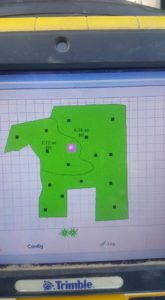
This helps increase yield potential makes the products you use more valuable. With Indiana Farm Solutions, you get a full color, 19 page, connected folder style soil map.
This map includes:
- Field boundary map
- Soil type map with description of all the soil types in your specific field.
- Sample zone map that shows where samples were taken.
- Organic matter map
- PH level map
- Map of your CEC
- Map of Phosphorus levels
- Map of percent base K
- Map of percent base Ca
- Map of percent base Mg
- Lime recommendation map
- Potassium recommendation map
- Phosphorus recommendation map
- Result detail page
- Recommendation summary page
- A 5-year comparison sheet
Chicken Litter has been used as a fertilizer for generations on American farms. The problem is unless you own a chicken facility, the manure is hard to find.
Poultry manure/litter is an important source for fertilizing corn, soybeans, wheat, and hay. It has the most effective ingredients out of all animal wastages available.
Nutrients in (inorganic) fertilizers are readily available for plant uptake upon application, while the (organic) forms of nutrients are slow releasing nutrients that are available later with more benefit to the plants. Poultry litter contains both inorganic and organic forms of nutrients so you actually get the best of both worlds.
Chicken Litter feeds the good bacteria in the soil as well as adding Organic matter.
In one ton of chicken litter, you get between 50 and 60 lbs of organic Nitrogen as well as P & K, Ca and Sulfur.
Indiana Farm Solutions offers Full litter packages for farms all over the state. We work with two large egg producers in Central and Northern Indiana that provide us with clean layer manure. We provide the litter, trucking and spreading packages as well as litter and trucking only packages to serve your manure needs.
We offer both synthetic and processed gypsum from two locations in central Indiana.
We can sell, haul and spread gypsum on your fields at any rate you need. Most of the time, this is based on the CEC profile obtained by a soil testing sample.
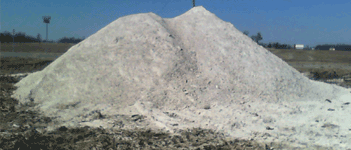
Top eleven reasons to use gypsum (calcium sulfate):
- Improves soil structure.
- Prevents crusting of the soil surface. With a 2.5 inch rain, you can get 1 inch of surface crust, Gypsum helps break this apart and allows better seed emergence.
- Improves already compacted soil.
- Reduces water run-off and erosion up to 75% after the first application. Can control erosion up to ten times.
- Prevents the water logging of soil which can reduce the sensitive compounds during flood stages.
- Helps stabilize the organic matter by activating carbon and sulfur. This helps activate potential microbial activity.
- Helps the plants absorb nutrients. All plants need Calcium at the root tip, if they can’t find it they spend a lot of energy trying to create what they need to grow. This is wasted energy that could be used elsewhere in the growing process.
- Gypsum carries available soluble calcium to the root system.
- Gypsum is a good source of Calcium and Sulfur in itself.
- Gypsum helps prepare the soil for no-till planting.
- Gypsum helps keep clay off of tubular root crops like many cover crops.
Ever heard of Spray Water? If not, take a look. Indicate 5 is the best product on the market to get you the spray water you need for your spraying applications.
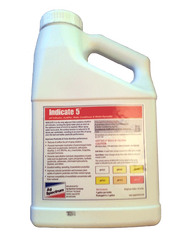
Many farmers don’t realize that when spraying time comes, the water we use can be just as important as the chemical being applied. If your water is not at the right ph level, you may not be using the chemical products to their fullest potential. Now, there is no need for water testing equipment or playing a guessing game of whether or not your water quality is allowing spray applications to be effective or not. INDICATE 5 is the only adjuvant that contains a built-in pH indicator, turning the spray water pink as soon as the optimum level of 4.5-5.5 is reached. When spray water turns pink, the surface tension is reduced to 26 dynes per centimeter, resulting in an even film of spray over the leaf and better pesticide performance.
- Improves pesticide and foliar nutrition performance.
- Reduces and buffers the ph of spray solutions
- Prevents hard water inactivation of post-emergent herbicides (such as glyphosate, bentazone, sethoxydim, fluazifop, 2 4-D, MCPAs, insecticides, fungicides and plant hormones.
- Prevents rapid alkaline hydrolysis (degradation) of pesticides such as glyphosate, organophosphates, synthetic pyrethroids, carbamates, chlorinated hydrocarbons, triazines and others.
- Excellent wetting, spreading and penetration properties.
- Improves cuticular penetration and increases plant uptake and systemic pesticides and foliar nutrient sprays.
- Improves the compatibility of emulsifiable concentrates with foliar nutrients.
Focus on soil management should be the foundation for more efficient crop production. We offer many different types of lime to fit your needs.
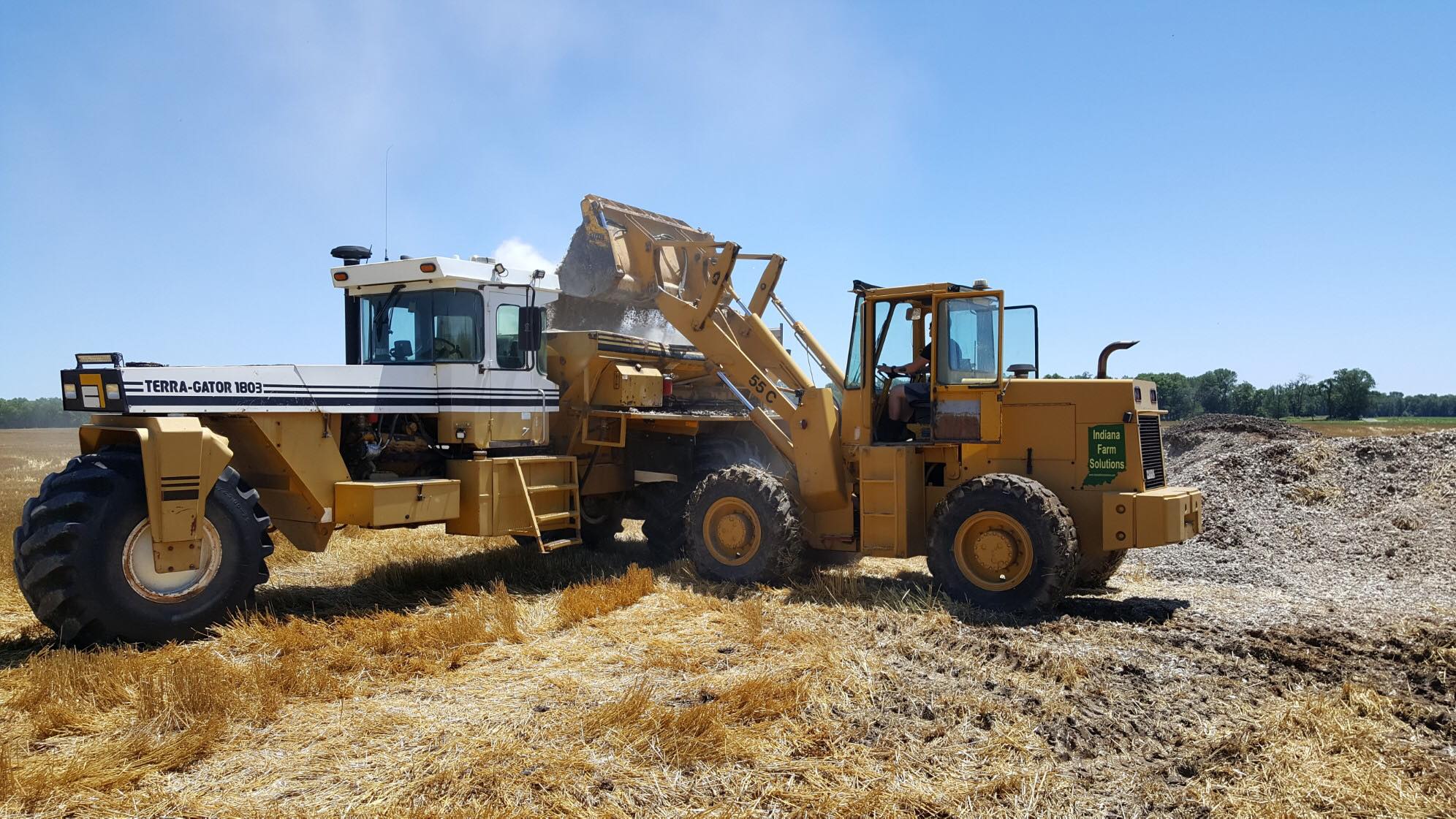
We can haul and spread your lime in the fall or early spring. Variable rate spreading based on your soil’s needs. Straight spreading at rates you desire.
Please call or drop us a line if you have any questions or need more information about our products and services.
